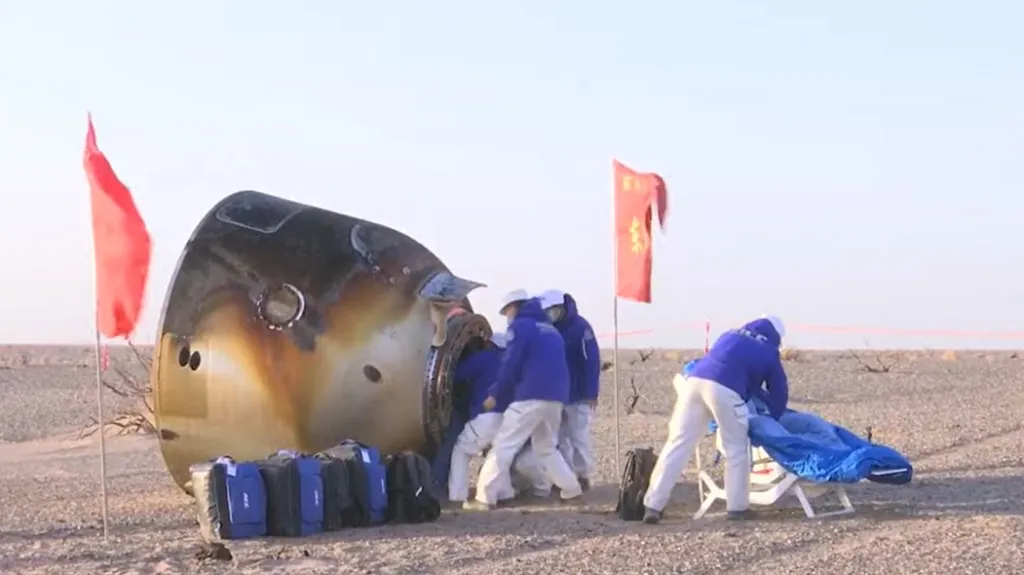Chinese astronauts aboard the Shenzhou-20 spacecraft returned to Earth on November 14, 2025, after a delay caused by damage from an impact with space debris. The crew, consisting of Chen Dong, Chen Zhongrui, and Wang Jie, was originally scheduled to land on November 5. However, the incident necessitated the use of the newly arrived Shenzhou-21 spacecraft for their return.
The damage occurred when the Shenzhou-20 spacecraft sustained a cracked window due to the debris impact. This prompted the crew to remain at the Tiangong space station while mission controllers at the China Manned Space Agency (CMSA) assisted with inspections and contingency plans. According to a statement from the China Manned Space Engineering Office (CMSEO) on November 11, assessments were ongoing, and backup return strategies were being developed.
The crew finally departed the Tiangong station aboard Shenzhou-21 at 10:14 p.m. EST (7:14 p.m. PST) on November 13, indicating that Shenzhou-20 was no longer safe for their journey. They successfully landed in Inner Mongolia at 11:14 a.m. Beijing Time (9:14 p.m. EST; 6:14 p.m. PST, November 15, 2025). Following their return, medical teams evaluated the astronauts and confirmed that all were in good health, as reported by the state-owned media outlet Xinhua.
Reflecting on the mission, Commander Chen Dong stated, “Space exploration has never been easy for humankind. This mission was a true test, and we are proud to have completed it successfully.” He emphasized that the safety of astronauts was a priority throughout the mission, praising the performance of all teams involved.
The CMSEO’s official statement indicated that Shenzhou-21 had launched from the Jiuquan Satellite Launch Center on October 31, 2025, carrying a replacement crew of Zhang Lu, Wu Fei, and Zhang Hongzhang. The departure of the Shenzhou-20 crew leaves the Shenzhou-21 astronauts without a clear return plan. However, it is anticipated that the upcoming launch of the Shenzhou-22 spacecraft, which will not carry a crew, will address this gap.
The Shenzhou-20 mission marked several significant milestones. Commander Chen Dong completed six extravehicular tasks, making him the taikonaut with the most such tasks to date. The crew also set a record for spending more than 200 consecutive days in space. Interestingly, they celebrated their time in orbit by sharing a barbecued meal, a first for astronauts in space, which was timed to welcome the new crew.
This incident underscores a crucial developmental milestone for China’s space program. It highlights the agency’s preparedness for unforeseen challenges in space exploration. The ability to implement effective backup plans ensures that operations aboard the Tiangong space station can continue smoothly.
As the International Space Station (ISS) nears retirement, China aims for the Tiangong station and its successors to play a vital role in advancing humanity’s exploration and scientific endeavors in Low Earth Orbit (LEO).







